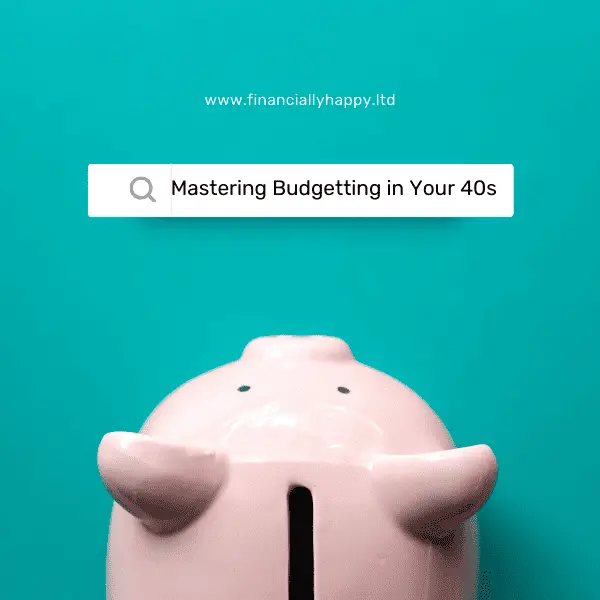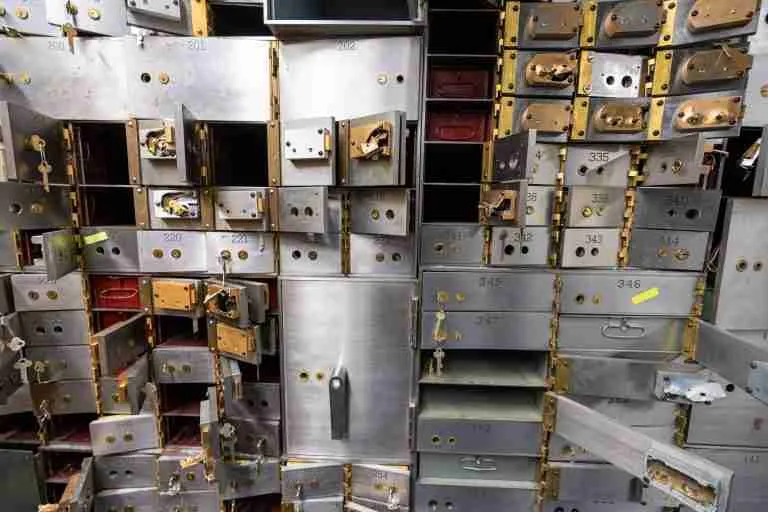Can I cash in my pension if made redundant? (Important things to know)
Losing your job is tough, and it throws a lot of questions at you.
One big question you might have is, ‘Can I cash in my pension if made redundant?’
If that’s what you’re wondering, you’re in the right spot.
If you’re 55 or older, you can usually access your pension after redundancy. However, if you’re under 55, doing so may incur tax penalties and reduce your retirement funds. It’s crucial to consider tax implications and seek financial guidance before making any decisions regarding your pension.
In this blog post, we’re going to talk about what happens to your pension when you lose your job.
We’ll keep it simple and clear, so you can figure out your options without the headache.
Whether you’re thinking about early retirement or just need to get by for now, it’s important to know what you can do with your pension. Let’s dive in and find out how you can make the best choice for your future.
Read on to see what happens to your pension when you are made redundant

Photo by Piotr Łaskawski on Unsplash
Can I cash in my pension if made redundant?
If you are made redundant, several things can happen to your pension depending on the type of pension you have and your age:
Defined Contribution Pension: If you have a defined contribution pension, your own contributions and any made by your employer will usually stop when you are made redundant. The money already in the pension pot remains yours. You can leave it invested until you are ready to retire, or you can transfer it to another pension scheme.
Defined Benefit Pension: If you have a defined benefit pension, your entitlement to benefits will depend on the rules of your pension scheme. You will usually be entitled to a pension based on your salary and how long you have been a member of the scheme, but this may be reduced because you are not making contributions for the full term originally expected.
Early Access: If you are 55 or older, you have the option to access your pension early. However, this can have implications for your income in retirement and may also have tax consequences.
Transferring Your Pension: You might consider transferring your pension to a new employer’s scheme if you find a new job. This can sometimes be beneficial, but it’s important to compare the benefits and rules of the two schemes.
State Pension: Redundancy does not affect your State Pension, but it’s worth checking whether it affects any benefits you receive that are based on your National Insurance contributions.
Seeking Advice: Because pensions can be complex and the decisions you make can have long-term consequences, it’s often a good idea to seek independent financial advice. A financial planner who specializes in pensions can help you understand your options and make the best decision for your circumstances.
Redundancy can be a challenging time, and it’s important to consider all your options carefully, especially when it comes to your long-term financial security.
Can you cash in a pension early?
This depends on the pension plan.
If it is an occupational pension, you may be able to cash it in early if you leave your job.
If it is a private pension, you may be able to cash it in early if the provider allows it.
It is best to check with the provider to see what the options are.
You may be able to cash in your pension early, but some penalties may be associated with doing so. It’s best to speak with a pension specialist to see if cashing in your pension early is the right move for you.
What happens to your workplace pension if you are made redundant?
Essentially what happens to your pension when you are made redundant is nothing.
Your company will stop paying into it; unless you do otherwise, your payments will also stop.
It sits there waiting for you to do something with it!
The money invested in the pension fund remains yours as it is in your name.
In general, it is sitting there waiting for you to reach or get close to pensionable age.
Depending on your pension, it might start doing a thing called life styling whereby it starts de-risking itself or, in plain English, moving out of stocks and likely into bonds.
This is to try and smooth the ride as you are getting closer to accessing it.
If you don’t have a life styling element, it will stay the way you set it up.
Once you reach pensionable age, it will send out letters asking you what you want to do next.
Note to self: Make sure you keep all your addresses up to date with all your pension providers!
Working out what you need now and later will help with planning
What could I do with my pension?
You could do 3 to 4 things with your pension if you are laid off from work.
- You can keep it where it is – if you like what it is invested in.
- If you have another job, you could transfer it to your new workplace pension
- Or you could transfer it to a personal pension – if you have one.
The 4th is where you might be able to access if you are over 55. If you have already reached this age, you might be able to take early retirement and access the pension funds.
Combining your pensions can have some administrative advantages with everything in one place, but you need to make sure there are no penalties or loss of benefits if you move it.
If you have a defined benefit pension, you will likely need to take advice before making any changes.
If you were to take early retirement, you would need to ensure that you have enough funds for your desired lifestyle. Otherwise, you might need to return to work if your numbers are wrong.
Do the sums before making any big changes
Can I cancel my pension and get the money?
This is only potentially an option if you have only just joined the pension scheme and within the cooling-off period – if they have one.
The bigger question is, what do you want to do with the cash as it will support you in your retirement? Are you cheating your older self of a vital source of income?
As mentioned earlier, the primary way to get your hands on your pension “early” is to take early retirement when you are between 55 and 57, depending on your pension.
There are some exceptional cases due to terminal illness where you might access your pension earlier. Still, these usually come with hefty penalties regarding the tax levels you must pay on any withdrawals.
If you are considering accessing your pension because of illness, you would be well placed to discuss its advantages and disadvantages with a financial advisor.
Be careful about burning through your cash too fast – it may need to last a long time.
FAQ: Can I cash in my pension if made redundant
Can I cash out a pension from a previous employer?
Can I take a lump sum for my pension after leaving the company?
It’s important to consider factors such as investment options, fees, and tax implications before deciding on an option.
Before transferring a defined benefit pension worth more than £30,000, professional advice is recommended.
What happens if I take voluntary redundancy?
However, it is essential to consider the financial implications of accepting such an offer before you are ready to retire. Accepting an early retirement offer or severance package may require you to begin withdrawals from your retirement accounts sooner than you had planned, which can have significant consequences such as lower Social Security benefits, lower pension benefits, and increased healthcare expenses.
Therefore, it is crucial to evaluate your retirement assets, age, and healthcare options before deciding to accept voluntary redundancy
What is the difference between voluntary redundancy and compulsory redundancy?
On the other hand, compulsory redundancy is when your employer decides to terminate your employment due to business circumstances, such as a reduction in staffing numbers or the complete shutdown of an organization or function.
In a compulsory redundancy, the employer must follow proper procedures to avoid costly employment tribunals for unfair dismissal.
While voluntary redundancy packages typically offer more financial compensation than compulsory redundancy, both options can affect your financial as well as psychological wellbeing.
What happens to your pension when you are made redundant?
Summary: Can I cash in my pension if made redundant?
If you are made redundant, your pension sits there waiting for you to take action. Unfortunately, though cashing it in is only available for a few specific reasons like early retirement or terminal illness, you might need to seek financial advice.
Your options are generally.
- You could leave it where it is.
- Transfer it to your new workplace pension.
- Transfer it to your own personal pension.
or
- Another option is to retire early if you are 55 or over.
If you are trying to access your pension early, then it’s worth figuring out how this early access fits in with your overall lifestyle needs, i.e., if you spend all the money now, what will you live off when it’s all gone?
Questions like this will need some thinking and planning over.
Here are a few related ideas when it comes to thinking about pensions.
How do I find out if I have a pension from an old job?
Should I transfer my pension to my new employer?
What happens to my pension when I leave a company?
What is the average pension in the UK, and why this is more or less irrelevant to you!
Need a Helping Hand with Your Finances? 🤝💰
If you’ve made it this far, congratulations! You’re already taking steps towards a healthier financial future. But maybe you’re feeling a bit overwhelmed. Maybe the thought of budgeting, saving, and investing still makes you break out in a cold sweat. Don’t worry, you’re not alone, and help is available.
At Financially Happy Money Coaching, I understand that money isn’t just about numbers. It’s about emotions, behaviours, and life choices. That’s why we’re here to help you take the stress out of money and build wealth in a way that aligns with your values and lifestyle.
Whether you’re just starting out on your financial journey or you’re looking to take your finances to the next level, we’re here to guide you every step of the way. I’ll help you understand your financial behaviours, set realistic goals, and create a personalized plan to achieve those goals.
So, why wait? Start your journey towards financial happiness today. Remember, the best time to start was yesterday. The second best time is now.
Click here to schedule your consultation and let’s make your money work for you, not vice versa. 💪💰
Remember, financial freedom isn’t a destination; it’s a journey. And every journey is easier when you have a guide. So, let’s embark on this journey together and create a financially happy future. 🚀💸









